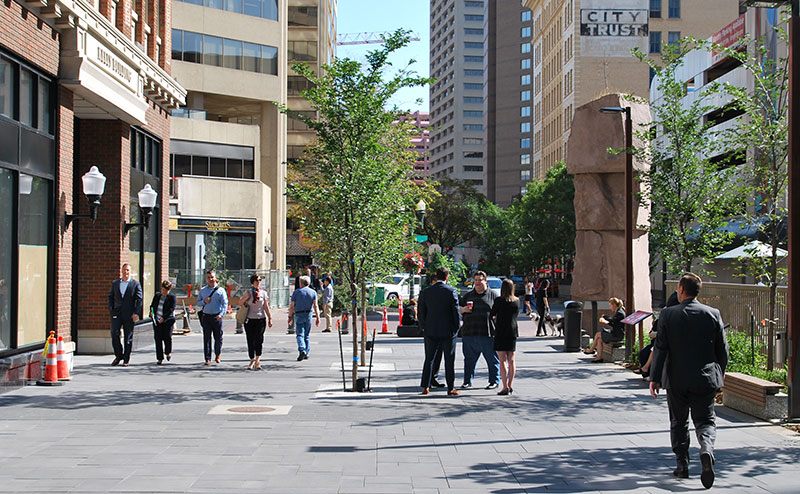Bylaw 20700 (Public Spaces Bylaw) goes to City Council on Feburary 10, 2025. Here’s the response we sent to Council.
Dear Members of City Council,
Thank you for the opportunity to provide feedback on Bylaw 20700. While we recognize and support the intent to promote safety and well-being in public spaces, we are deeply concerned about the bylaw’s omnibus nature. It seeks to address a broad range of issues under a single framework, which risks oversimplifying complex social challenges and could result in unintended consequences, particularly for vulnerable populations.
By grouping issues such as homelessness, public safety, and transit use into one bylaw, the regulations proposed lack the necessary nuance to address these concerns effectively. Challenges like homelessness, mental health, and addiction require thoughtful, targeted approaches—rather than a generic solution. The broad nature of the bylaw could inadvertently penalize those who rely on public spaces for shelter and safety rather than focusing on addressing truly disruptive behaviours.
We strongly encourage the Council to consider separating the issues related to public safety and vulnerable populations into distinct policies or sections. This would allow for more tailored enforcement and ensure that the regulations are equitable and sensitive to the needs of those facing hardship. Public transit and public spaces must remain accessible to all, and any regulation should prioritize human dignity and support services over punitive measures.
Key Recommendations:
Tailored Enforcement: Ensure officers are trained to distinguish between
harmful behaviours and survival behaviours (e.g., seeking shelter) in transit
spaces.
Explicit Protections for Vulnerable Individuals: Ensure the bylaw does not
penalize non-disruptive behaviours such as sheltering or seeking safety in public
spaces.
Separate Provisions for Public Transit and Vulnerable Groups: Address
public transit and issues related to vulnerable populations in separate sections to avoid misapplication of penalties.
We urge Council to reconsider the omnibus nature of the bylaw to ensure that it effectively promotes safety without excluding vulnerable individuals. We are dedicated to collaborating towards an inclusive, equitable Edmonton.
Enforcement practices:
A critical component of the bylaw’s success lies in its enforcement. We urge Council to
ensure that peace officers and transit workers are specifically trained in
trauma-informed care, cultural sensitivity, and the ability to distinguish between harmful behaviours and those stemming from vulnerability. Enforcement must be
contextual—especially when individuals may be seeking shelter, warmth, or safety—and should not automatically result in punitive action.
We recommend that the bylaw include provisions allowing officers to make discretionary decisions based on the context of the situation. This would help avoid the criminalization of survival behaviours, while encouraging a compassionate, supportive approach to
those in need. Such an approach would ensure enforcement that is equitable and
respectful of the diverse needs of all public space users.
Active transportation and micro-mobility:
Another area of concern is the regulation of active transportation options, such as
e-scooters and bicycles. While we acknowledge the importance of safety, the proposed bylaw’s restrictions on e-scooters and bikes on sidewalks may inadvertently limit accessfor individuals who rely on these modes of transport to connect to transit hubs. This issue is particularly problematic where safe transitions between bike lanes, sidewalks, and roadways are not clearly marked. In such cases, cyclists and scooter users have no choice but to navigate sidewalks to avoid busy roads or areas without proper bike infrastructure.
In many areas, sidewalks are the safest option for individuals, especially when bike
lanes are poorly designed, disconnected, or nonexistent. We recommend that the bylaw
prioritize the creation of clear wayfinding, designated bike lane connections, and safe
transitions between modes of transportation, particularly around transit stations.
Rather than restricting access, we urge the City to collaborate with urban planners,
community groups, and active transportation advocates to identify opportunities for safely integrating micro-mobility options into public spaces. This would help ensure that pedestrian safety remains a priority while also improving accessibility for those who rely
on alternative modes of transport to navigate the city.
Fines and their limitations:
A further concern with the proposed bylaw is the reliance on fines as a punitive
measure. For individuals facing homelessness or those in vulnerable situations, fines are often not a feasible or practical solution. It is unlikely that someone experiencing housing instability would have the means to pay a fine, and such financial penalties do little to address the root causes of the issues they are facing, such as poverty, mental health challenges, or addiction.
Instead of focusing on fines, we urge Council to consider alternative approaches that prioritize support and engagement. Referrals to social services, housing assistance, or mental health support can provide more meaningful assistance to struggling individuals. These alternatives would help address the underlying causes of vulnerability and ensure that the bylaw does not inadvertently exacerbate existing hardships for those already marginalized.
Conclusion:
In conclusion, Bylaw 20700 can potentially improve public safety and order, but it must
be implemented with care to ensure that vulnerable individuals are not unintentionally penalized. We urge Council to implement more nuanced, targeted solutions. This would protect vulnerable populations and promote the safety, accessibility, and inclusivity of
public spaces for all Edmontonians.
Thank you for your consideration. We are committed to working together for a more
equitable and inclusive Edmonton.


Comments
One response to “Improvements Needed to the Draft Public Spaces Bylaw”
[…] Public Spaces Bylaw – February 10, 2025 […]